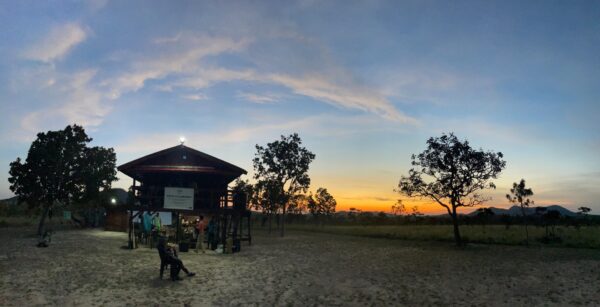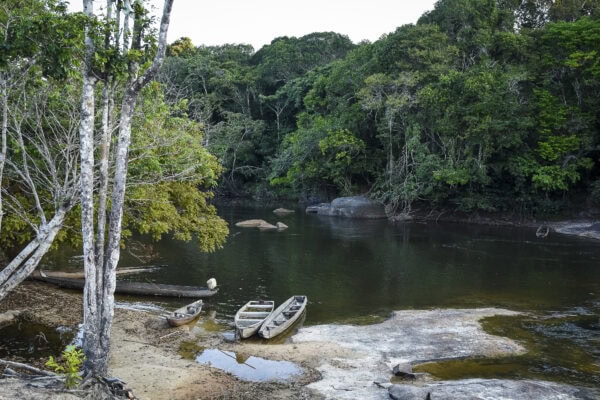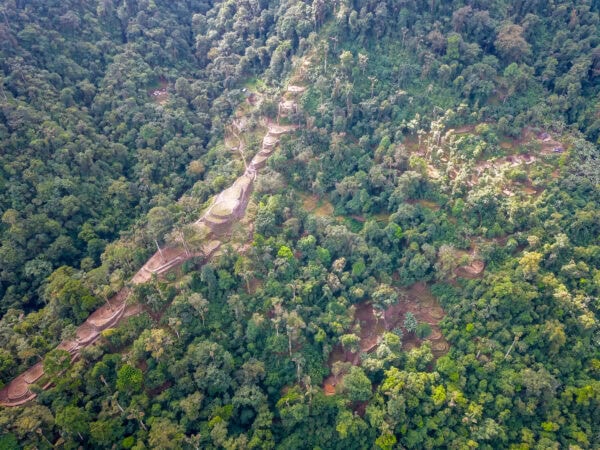By Francisco de Roux (Jesuit priest, philosopher, economist, and president of the Colombian Truth Commission)
March 29, 2020 – Semana
By Francisco de Roux (Jesuit priest, philosopher, economist, and president of the Colombian Truth Commission)
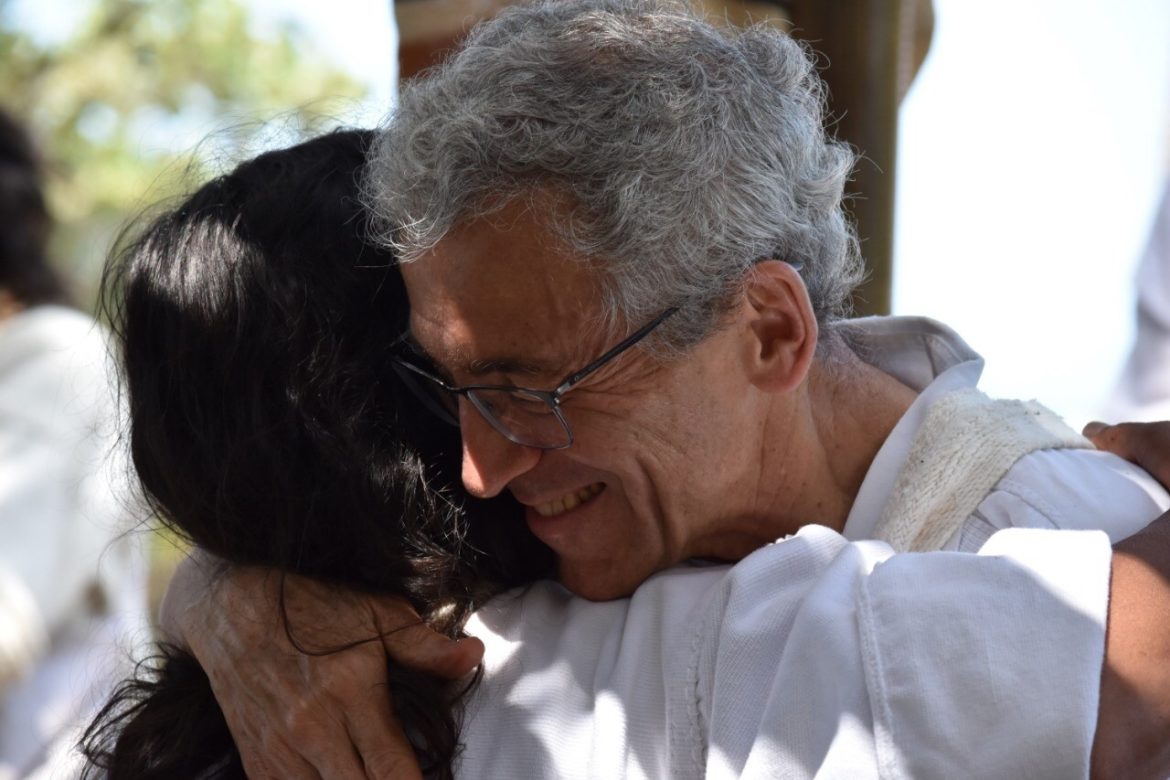
Our guest reflects on the moment we are experiencing as a society. It is now, he says, when we need the determination to move forward in the knowledge of our own fragility.
We believed ourselves invincible. We were going to quadruple world production in the next three decades. In 2021, we would have the highest growth so far this century. We killed 2,000 species per year, flaunting our brutality. We had established as moral that good is everything that increases capital and bad is what decreases it, and governments and armies looked after money but not happiness.
It became normal for us to have the richest ten percent of the world, including in Colombia, keep 90 percent of income growth each year. We had excluded indigenous peoples and blacks as inferior. The young men had left the field because it was shameful to be peasants. We were funding research to turn back death beyond the 150th birthday.
There were awkward questions. To silence them, we convinced ourselves that we could do without reality. With Baudrillard and other philosophers, we alienated ourselves in an “unrealized” world and chose powerful leaders who put truth aside. And we consumed junk and fantasies and emotions that we found on Netflix, YouTube, Facebook, celebrity news and even web pornography, into which we stuck our heads like ostriches.
There were the indigenous peoples and the youth and groups of women and men who told us that we had lost the path of reality and mystery. That the conditions were in place for a planetary fraternity. We called them backward, and enemies of progress. Declaring oneself an atheist, which may be an honest intellectual decision, became for quite a few a demonstration of self-sufficiency. Homo Deus, “Man as God”, was the title of the book by Noah Harari that we devoured.
But suddenly, reality arrived. The coronavirus removed us from the illusion of being gods. We are confused and humiliated watching the real numbers of the infected and dead rise. And we don’t know what to do. Faced with this reality, Harari now refers to a spirit of solidarity that he had not seen before.
Vulnerability
We are definitely not ever secure. In a few decades, we will all be gone, with or without COVID-19. The steamroller of death is more than a match for our stupid appearances. “Pallida mors aequo pulsat pede“. Pale death puts its foot on everyone. And the day it arrives, nobody takes anything with them. We leave alone. No credit cards, no car, no house. We will go with what we have been in love, friendship, truth, and compassion, and with what we have been in lies, selfishness, dishonesty. Thus, we will face the mystery, and we will remember or reject our history.
Living with the grandeur of vulnerability is living authentically, in solidarity and interdependence, because through it, we understand that we are all carried by each other, protected by each other. Race, gender, country of origin, social class, money, religion—none of these matter. It is the message of COVID-19.
Vulnerability leads us to include others without believing ourselves superior. It allows us to celebrate each day as if it were the last. It gives us courage in the face of risk and the audacity to joyfully announce hope in the midst of uncertainties.
Vulnerability arrives so that governments understand what the State is. It is the only institution that we as citizens have to ensure conditions of dignity to all men and women equally, in good times and bad. That’s what presidents and ministers are for, and the Police and Army, and the judges and Congress. All are vulnerable.
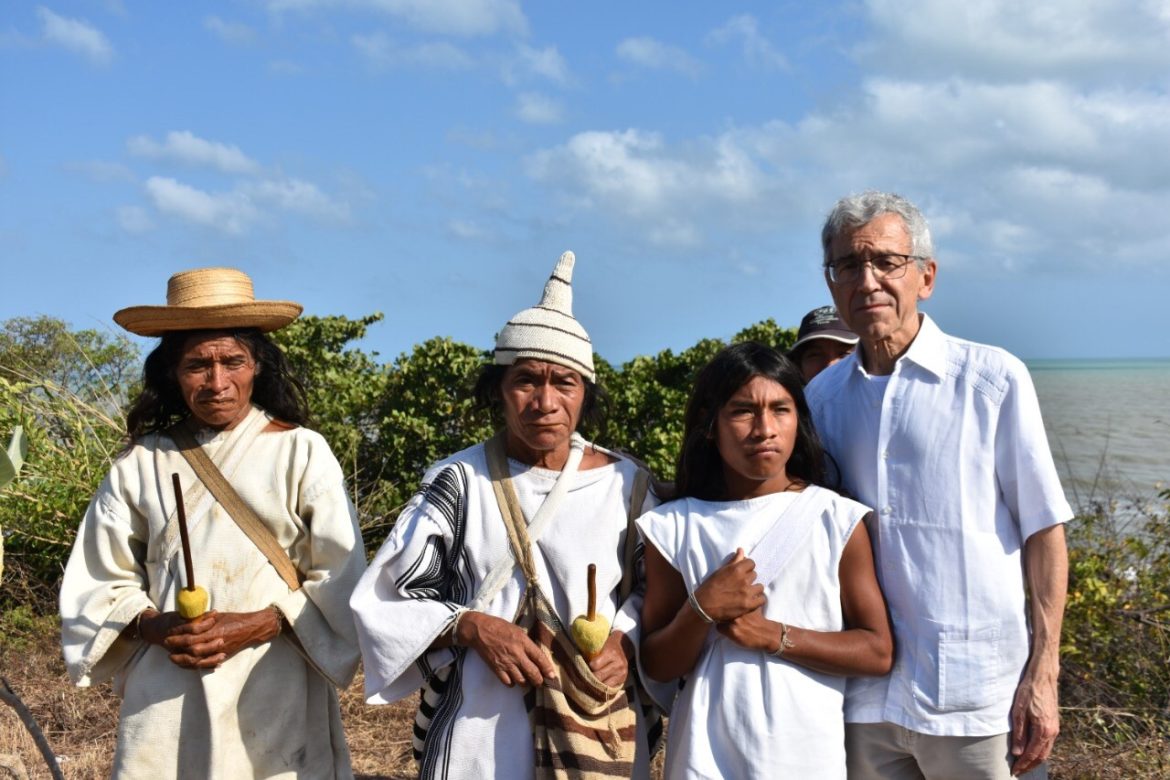
The truth endures
At the Colombian Truth Commission, we often hear that it is a mistake to seek the truth of what happened in the conflict. “Leave that alone,” is the expression, many times out of genuine fear. But the reality of the pandemic shows that we cannot escape the truth. That we have a responsibility to bring it into the open. So the global question today is about the truth of COVID-19: what does it consist of, how does it propagate, how can it be stopped? We do not accept it when they tell us that it is possibly just a scare tactic, that perhaps in a month we will find ourselves back to normal, that a cure can be obtained with the prayer of a novena. No assumptions, no illusions, no beliefs. We need to know the truth.
Perhaps now we understand why we continue to search for the truth of the Colombian internal armed conflict in order to confront realities that can destroy us. We cannot abandon the obligation to create awareness of the murder of more than 300,000 civilians, and the nine million surviving victims. And as long as we do not know the structural causes and assume the obligations that arise from that truth, we will continue along our current path, with 10,000 armed people among the ELN and the drug trafficking groups, the murder of leaders and the breakdown of communities.
We agree with the extraordinary measures taken by the government and the mayors in the face of the coronavirus. They are decisions of state power that show that the extraordinary is possible in the face of a mortal reality when there is political will. When will we take extraordinary measures against political violence linked to drug trafficking that has been much more lethal than the pandemic among Colombians?
The message of the Kogui
Three weeks ago, the Kogui mamos received us in the Sierra Nevada de Santa Marta at the invitation of Juan Mayr. They shared with us the pain of the destruction of their habitat and the difficulty of preserving their sacred sites. They were aware of the pandemic, and the message they gave us was simple and clear:
The spiritual forces that are the origin of nature placed knowledge in each being. There is knowledge in the turtle, in the tree, in the stone, in the water … Human beings must learn from that knowledge. But we have been killing those beings, and by killing them, we kill knowledge. That is why we know less and less, and that is why we have gone on to kill ourselves, and it may be that nature ends up killing us all.
The message is not to relinquish what has been gained through the extension of life expectancy at birth, education, and technology. It is to invite us to change all the madness that distanced us from nature and from ourselves and that sent us down the path of selfishness, injustice, inequity, violence and lies.
The people first
We are confined. We work on our networks. At the Truth Commission, we listen to the recordings of 12,000 victims. We read. We compare opinions. Like us, millions in Colombia work at home and earn income. But there are millions more who eat from what they earn each day, who cannot buy a sack of potatoes because they pay each night for the pound of rice and the quart of oil.
What will become of them? How are they going to survive locked up after three weeks pass, or twenty? These are the questions of poor single mothers, of thousands of small family initiatives that make their living on the street, of millions of households where the home is an overcrowded two-room residence in which five or seven people live off whatever they can gather. These questions put the State and the solidarity of all of us to the test. If we let everyone fend for themselves, and do not respond, that multitude will go out and take what is in the stores and supermarkets, because nobody can let their family die. In dire need, all things are common property, wrote the theologian Thomas Aquinas. If that multitude takes to the streets, the virus will invade all of us.
The national government and the mayors must go further to meet the demands of the crisis. Private companies and banks must act. And it is a personal obligation of each one of us, as citizens. It seems disproportionate to say it, but it is a matter of life and death. “Everyone in the bed, or everyone on the floor.” Will we be able to behave like human beings this time?
The silence
The streets are empty. The madness of running to arrive on time has stopped. The unbearable anxiety of traffic doesn’t touch us. If we want, we can finally be silent. If we do, we have the opportunity to access deep within ourselves, to connect and understand. We can do it as a family. It is the moment to limit the time in front of the television and the cell phone in order to open a space for the reality of the mystery that is felt when we abandon ourselves quietly to what comes from our inner experience. There, we access the wisdom that shows us our reason for living, our conscience and our personal and public responsibilities.
There, we need the determination to move forward in the knowledge of our own fragility. The need we have for each other. The meaning of authentic dignity, which exists only if its conditions are provided to everyone. The viability of what seemed impossible to us: generosity, solidarity and, beyond justice, reconciliation and forgiveness. The courage to live in a state of vulnerability.
Media Relations
For press release inquiries, please contact us at info@amazonteam.org.
Related Articles
Share this post
Bring awareness to our projects and mission by sharing this post with your friends.


